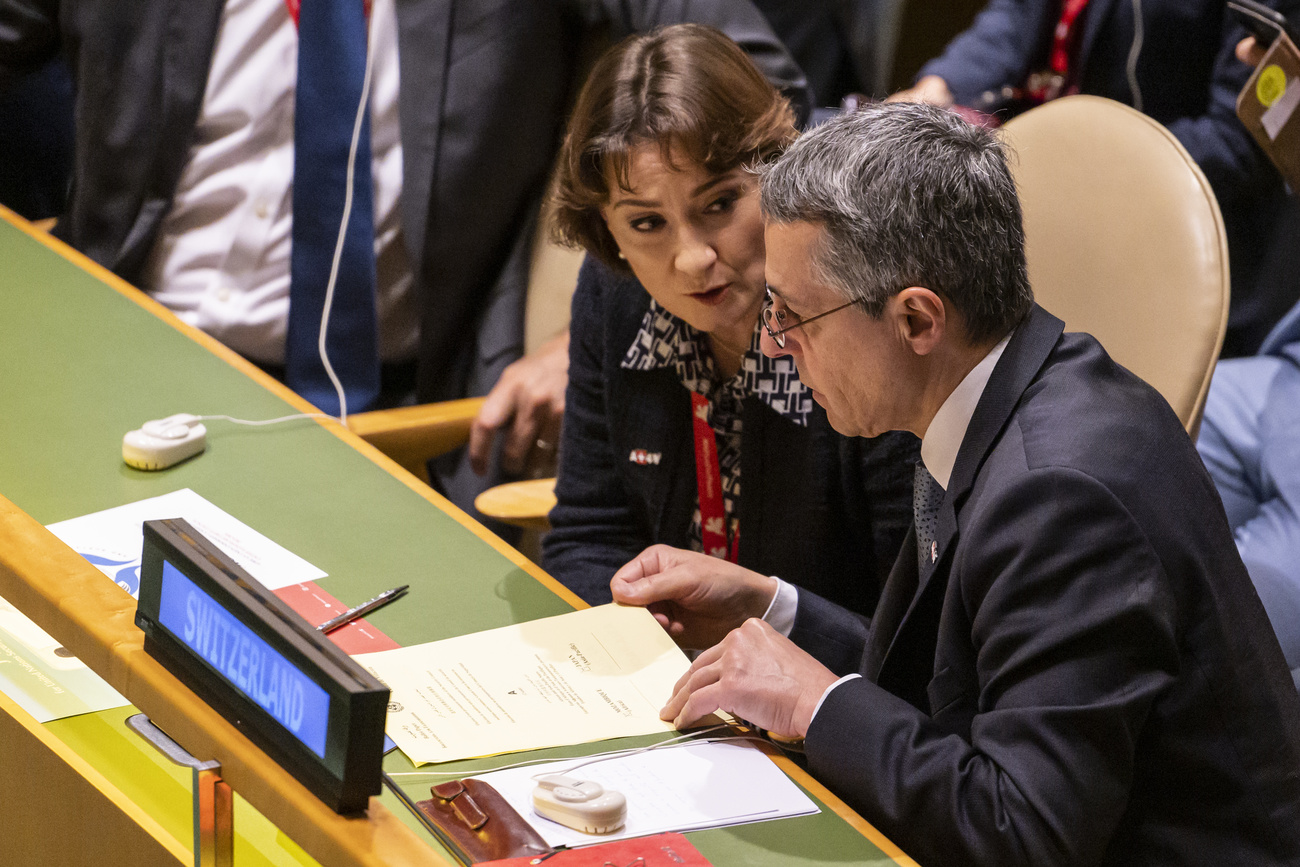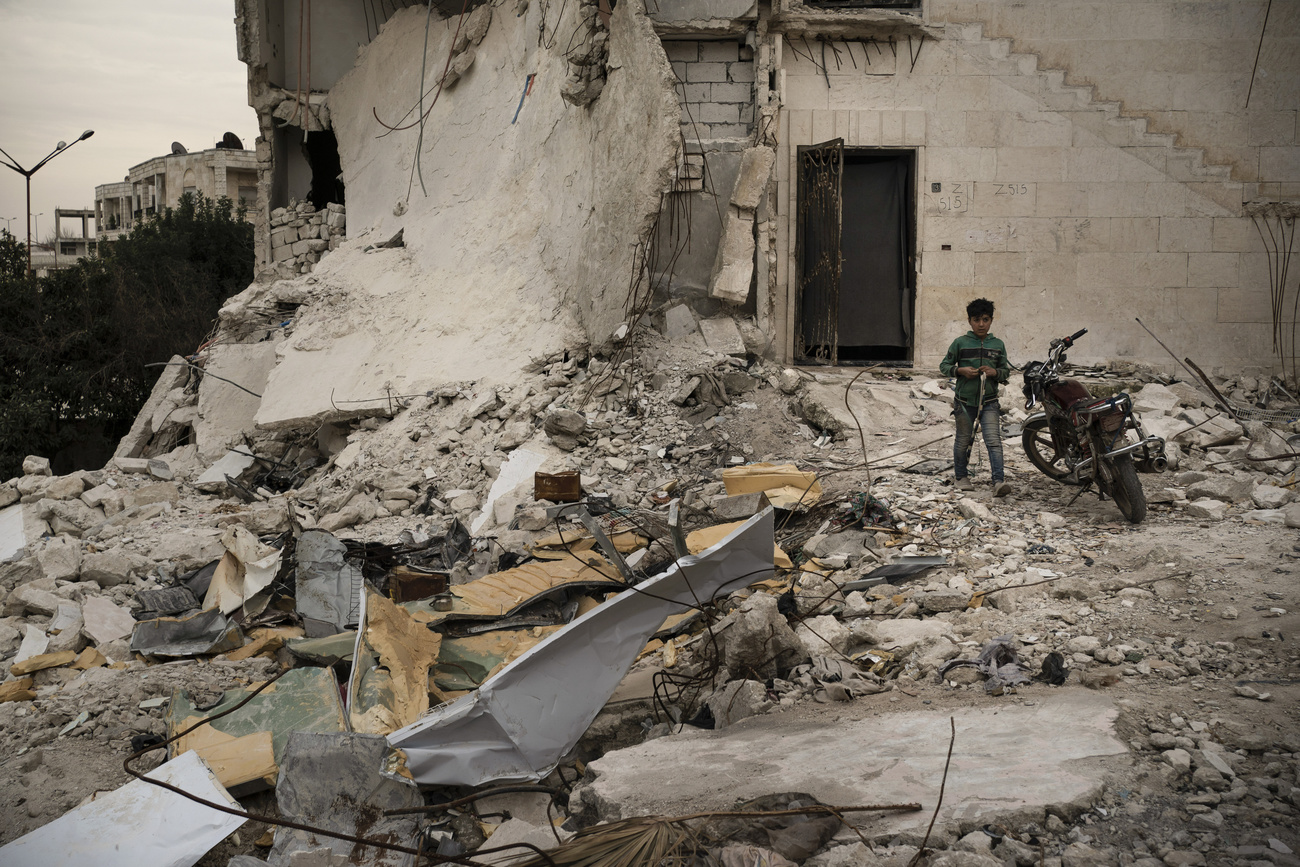Switzerland already makes itself useful in the UN Security Council

The border from Turkey to Syria at Bab al-Hawa can be used for emergency aid deliveries for another six months. Switzerland and Brazil were responsible for this compromise in the United Nations Security Council.
First there were four, then three, and for some time there has been only one border crossing open for emergency aid deliveries to the Syrian rebel areas. It is often referred to as the “last lifeline”. For years Russia has resisted the UN delivering humanitarian aid to Syria that does not go via the Syrian capital Damascus, i.e. via Moscow’s protégé, dictator Bashar al-Assad.
For the UN and humanitarian organisations, on the other hand, it is precisely direct aid to areas not controlled by the regime that is essential. They doubt that Assad would provide assistance to people in need in resistance areas.
Keeping Syrian border crossings open has therefore been a major bone of contention in the UN Security Council for years. Russia has vetoed some draft resolutions. On others, it has abstained. Surprisingly, however, it has now approved a compromise resolution, as have the other 14 Security Council members.
It provides that the border from Turkey to Syria at Bab al-Hawa can be used for emergency aid deliveries for at least another six months. Aid agencies and most states, not least Western ones, would have preferred the long-term use of several border crossings. But it was impossible for Moscow to agree to this. Why it agreed this time is not entirely clear.

More
Security Council passes Swiss-backed Syrian aid extension
Leading Swiss role
Switzerland and Brazil, the co-authors of the compromise, were responsible for the current solution. Switzerland is thus showing how it wants to – and can – make itself useful in the UN Security Council in future.
Not with big, bold projects such as peace for Ukraine or stopping the nuclear programme in Iran. Rather, as a mediator in numerous decisions on conflicts that are overshadowed by the headlines. In other words, in the political-diplomatic nitty-gritty. And even more so where humanitarian concerns, the protection of civilians and human rights are at stake.
This may not be particularly spectacular. It is not about big breakthroughs, but about small steps. But even decisions like keeping a border crossing open are vital for those directly affected. Vital for survival.
More than four million Syrians in the northwest of the country, including hundreds of thousands of people in need, can now be supplied with food, emergency shelters or medicine for at least another six months.
Fredy Gsteiger is a diplomatic correspondent and deputy editor-in-chief at Swiss public radio, SRF. Before working in radio, he was foreign editor at the St. Galler Tagblatt, Middle East editor and Paris correspondent for Die Zeit and editor-in-chief of Weltwoche.

More
How Switzerland could help restore some UN credibility

In compliance with the JTI standards
More: SWI swissinfo.ch certified by the Journalism Trust Initiative











You can find an overview of ongoing debates with our journalists here . Please join us!
If you want to start a conversation about a topic raised in this article or want to report factual errors, email us at english@swissinfo.ch.